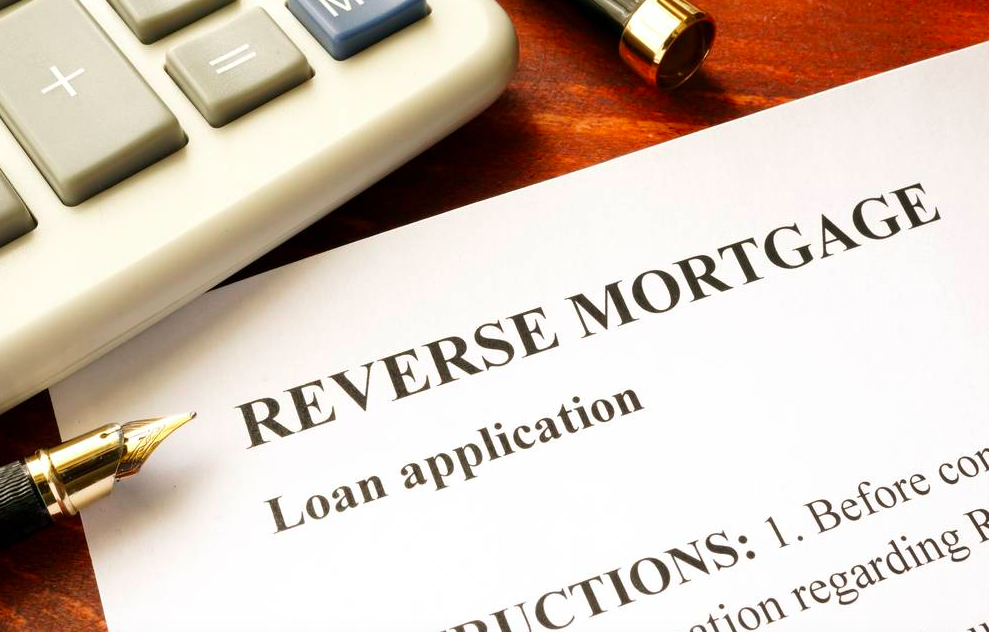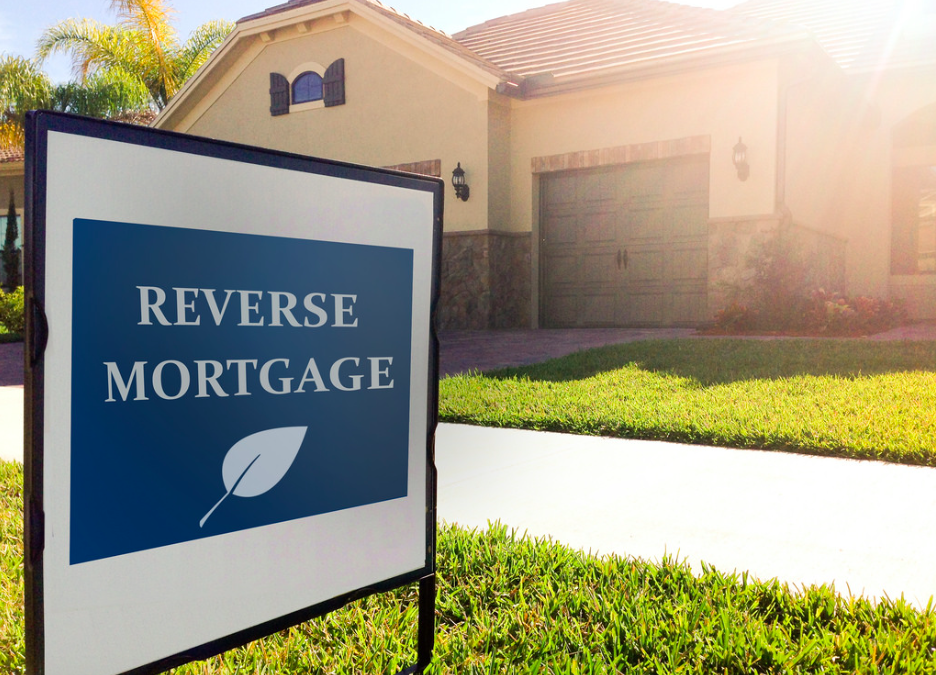A Reverse Mortgage is a type of home loan that allows homeowners ages above 62 years to borrow against their home’s equity. It is similar to a traditional mortgage and allows homeowners to borrow money using their home as security for the Loan. however, unlike the traditional mortgage, with the reverse mortgage loans the borrowers don’t make monthly mortgage payments.
Reverse Mortgages are typically reserved for older borrowers of 62 and up, however, some lenders allow for ages down to 55. Homebuyers who choose the Reverse Mortgage option can continue to live in their homes, but the loan must be repaid when the borrower dies, permanently moves out, or sells the home.
All the Reverse Mortgage Loans are non-recourse loans, which is a feature that protects the borrowers in case the home value drops. With non-recourse loans, the borrowers won’t be responsible for paying the difference if the Mortgage balance exceeds the home value when they sell their property. One of the most popular types of reverse mortgages is the Home Equity Conversion Mortgage (HECM), backed by the federal government.
What Is The Reverse Mortgage?
A Reverse Mortgage is a Home Loan that works a little differently from a Traditional Mortgage. The Reverse Mortgage Loan allows homebuyers age 62 or older to borrow money using their homes as collateral to back the loan. These kinds of Mortgage Loans are often used to pay off current mortgages, help pay healthcare expenses, or to supplement the current income. The Reverse Mortgage Loans were started in the United States of America in 1961 at a Portland, Maine-based bank. These Mortgage loans were put under the purview of the U.S. Department of Housing and Urban Development (HUD) in 1987.
The Loan is called the Reverse Mortgage loan because instead of making monthly payments to the Lender as with the traditional Mortgage the Lender makes payments to the Borrowers. The borrowers are not required to pay back the loan until the Home is sold or otherwise vacated. As long as the borrowers live in their homes, they are not required to make monthly payments towards the Loan Balance.
How Does a Reverse Mortgage Work?
The working process of a Reverse Mortgage is quite simple and it starts with a borrower who already owns a house. The Borrowers either have considerable equity in their home or have paid it off completely. The Borrowers decide they need the liquidity that comes with removing equity from their home, so they work with the counselor with the Reverse Mortgage to find the lender and a program.
Once a borrower chooses any kind of Loan program then they apply for the Loan Program. The Lender reviews the borrowers’ property and checks their credit scores, its title, and the appraised value. After approval, they initiate funds for the loan. The lender proceeds structure as either a lump sum, a line of credit, or periodic annuity payments (that may be monthly, quarterly, or annually) that depend upon the borrower’s choice. After the Lender provides the Reverse Mortgage Loans, the borrowers use the money as provided for their loan agreements. Some lenders have restrictions on the type of funds that can be used while others are unrestricted.

What Are The Types of Reverse Mortgages?
There are three types of Reverse Mortgage Loans such as single-purpose, Home equity conversion mortgages (HECMs), and proprietary reverse mortgages.
- Single-purpose Reverse Mortgage: A single-purpose reverse mortgage is offered by State, Local, and Nonprofit agencies. These are the least expensive options for Reverse Mortgage Loans. These mortgage Loans are backed by the government and other nonprofits. With these mortgages, Homeowners or Homebuyers can expect to pay less in interest and fees than the Home-equity conversion mortgage (HECM) or the proprietary reverse mortgage.
- Home equity conversion mortgages (HECMs): The Home equity conversion mortgages (HECMs) are federally insured Reverse mortgages. These types of Reverse Mortgage Loans are likely to be more expensive than traditional home loans and come with high up-front costs. HECM is the most widely used Reverse Mortgage because it caries no income limitations or medical requirements and the loans can be used for any reason.
- Proprietary Reverse Mortgages: Proprietary reverse mortgages are backed by Private Lenders. These types of Reverse Mortgages benefit homeowners who want more money and whose homes are appraised at a higher value. proprietary reverse mortgages are not federally insured. They do not have monthly or up-front mortgage insurance premiums (MIPs).
What Are the Fees Associated with the Reverse Mortgage?
Reverse mortgages are not free and can cost borrowers a significant amount of money when they sell their home. The borrowers may consider some expenses in Reverse Mortgage such as:
- Loan origination fee
- Mortgage Insurance premiums
- Title insurance and report
- HECM counseling
How To Apply For a Reverse Mortgage?
In order to Apply for the Reverse Mortgage, the eligible borrowers must meet the minimum eligibility requirements. These Eligibility Requirements include the following:
- The Borrowers need to be at least 62 years old, own their home, and live in their primary residence.
- The Borrowers need to have a significant amount of Equity, typically 50% or above.
- The Borrowers must have assets or income to afford taxes and Homeowners insurance premiums on the Home.
- The Borrower’s home needs to have a single-family home, townhome, or a one- to four-unit property in which they are living.
- The Borrowers need to keep the House in Good condition.
- The eligible borrowers need to attend a financial counseling session with a HUD-approved counseling agency.
All the eligible borrowers who follow these eligibility requirements to Apply for Reverse Mortgage Loans can Apply for the loan directly through HUD-approved lenders. However, the borrowers can get a list of lenders in their area offering HECM loans directly through the HUD’s website.
Reverse Mortgage Reviews
The Reverse Mortgage Loan has various benefits and drawbacks. The Reverse Mortgage Loans are a way for retired homeowners to access home equity without taking on monthly payments. Here below are some of the Pros and Cons of Reverse Mortgage Loans:
Pros:
- Reverse Mortgage Loans provide cash to cover important medical expenses late in life.
- With the Reverse Mortgage Loans, the interest rates are competitive with other types of traditional mortgages.
- Reverse Mortgage Loans provide access to additional funds for the retirement.
- Reverse Mortgage allows borrowers to stay in their home rather than having to sell for liquidity.
- These Loans can help reduce the tax liabilities because the money doesn’t count as income.
- These Loans help pay off the existing Loans.
Cons:
- If the borrowers can’t afford property tax and other fees then there is a possibility of losing the house to foreclosure.
- Most Reverse Mortgage Loans require Mortgage Insurance.
- Must own the property outright or have at least 50% equity to qualify.
- Makes less inheritance for heirs.
- harder to pass on the home to family.
Frequently Asked Questions (FAQs)
Question 1: How Much Money do you get from the Reverse Mortgage?
Answer: The amount of money you can borrow from the reverse mortgage depends upon the types of reverse mortgage you choose, the age of the eligible borrowers, current interest rates, and how much equity you have in the Home. However, the maximum amount you can get on a HECM is $1,089,300 in 2023. Depending upon the lender, this number may go as high as $6 million on proprietary reverse mortgages.
Question 2: How To Choose a Reverse Mortgage Lender?
Answer: To choose a Reverse Mortgage Lender, make sure to compare interest rates, terms, origination fees, service fees, and other factors.
The Final Verdict
A reverse Mortgage is a valuable tool For eligible borrowers, however, it’s essential to understand what they are signing up for and the risks it presents. The reverse Mortgage is a financial product designed to provide homeowners or homebuyers who are age 62 or older with a form of income by using the equity in their homes. Reverse Mortgages can be complicated products and the borrowers would do well to educate themselves about them to be sure that they are making the best choice about how to use their home equity.
